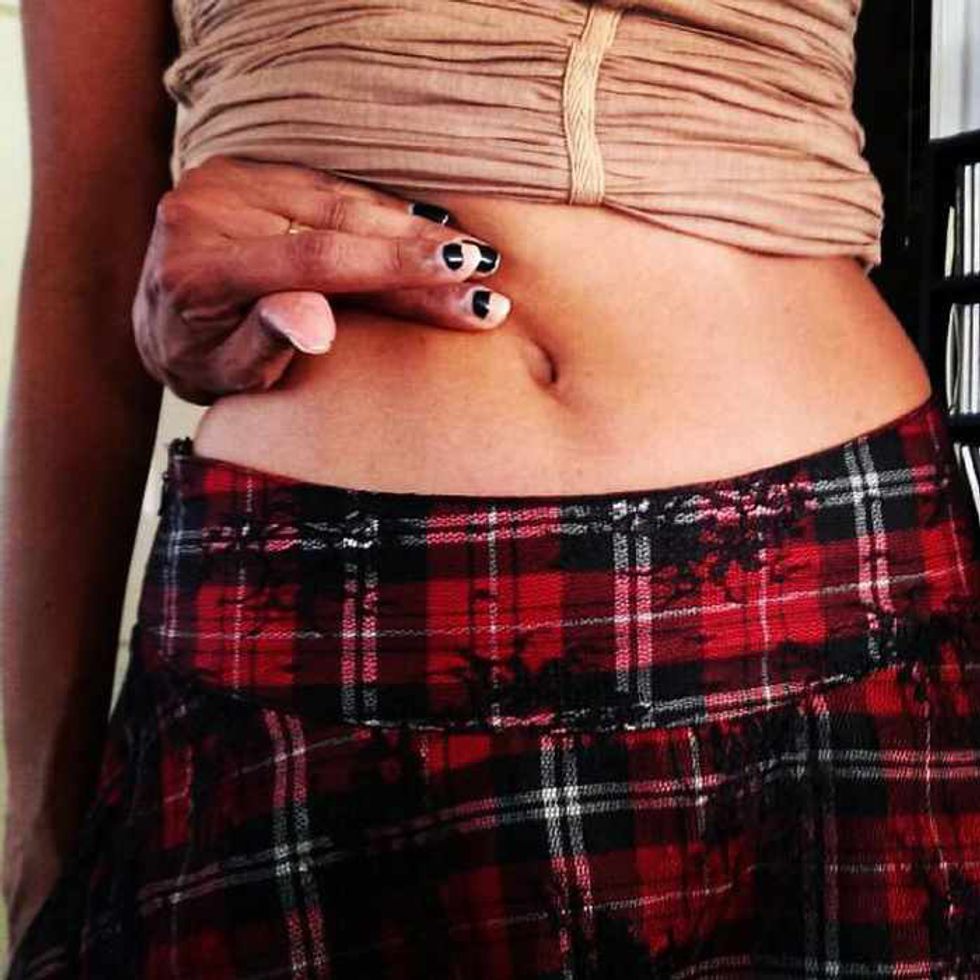First, it was the obsession with the thigh gap and then it was the Kylie Jenner Challenge. Now, among these body-altering trends, the “Belly Button Challenge” has gone viral.
The Belly Button Challenge began last week on Weibo, the Chinese version of Twitter. The challenge demands that people reach around their back with one arm, and attempt to touch their belly button. The viral hashtag #bellybuttonchallenge has taken over the Internet; within a couple of days, over 130 million people have been contorting their bodies into this uncomfortable position, and then posting photos of their successful and failed results on Instagram and Twitter.
Supposedly, according to an unverified scientific study, the ability to reach around the waist and touch your belly button is a sign that you have a good body, and the failure to do so means that you need to lose weight. This study has not been found anywhere, and therefore cannot be maintained as true.
At this point, you have probably tried the challenge, and have found that you cannot reach your belly button. You may not even be close. Although it is definitely possible to do, it is ridiculous to believe that the inflexibility or short length of your arms can determine health status, and that being able to fit into the awkward and tricky position is a telltale sign of possessing a good figure.
Sorry to tell you, but your inability to do the Belly Button Challenge means that you are doomed, and will never be healthy for the rest of your life unless you work out more and eat less.
How crazy does that sound? Somehow, millions believe that statement.
Cosmopolitan.com spoke to weight-loss specialist Charlie Seltzer in order to get the facts straight about whether or not the challenge is accurate in determining health conditions. "If you can touch your belly button from behind your back, you could be in better shape than someone who can't — but you shouldn't have a false sense of security about your health. You might have a small waist and look healthy, but your blood work could show that you're just as unhealthy as someone who weighs 400 pounds," Seltzer explains.
As if young girls using shot glasses to plump their lips for the #KylieJennerChallenge and losing muscle and fat in their legs to create thigh gaps weren’t physically dangerous enough, the Belly Button Challenge has women and men of all ages questioning their health and body figure. Because the viral hash tag prompts people to publically demonstrate their successes and failures, the body-shaming challenge can do more damage than good.
It is 100% possible to be healthy and not be able to complete the test. The most important thing to share about the challenge is that although it may be something fun to try out with your friends, the study that apparently triggered the creation of the test is unverified, and may not even exist.
Internet trends stay relevant for one reason, and that is because people worldwide continue to spread the links, pictures, and opinions. The only thing necessary to learn from the Belly Button Challenge is that people are crazy to believe such an insane theory, and that we need to end body shaming before it becomes a larger problem than it already seems to be.











 The minimum wage is not a living wage.
StableDiffusion
The minimum wage is not a living wage.
StableDiffusion
 influential nations
StableDiffusion
influential nations
StableDiffusion












